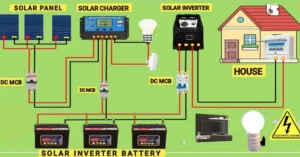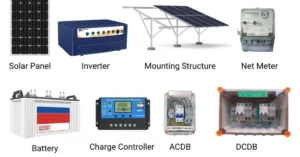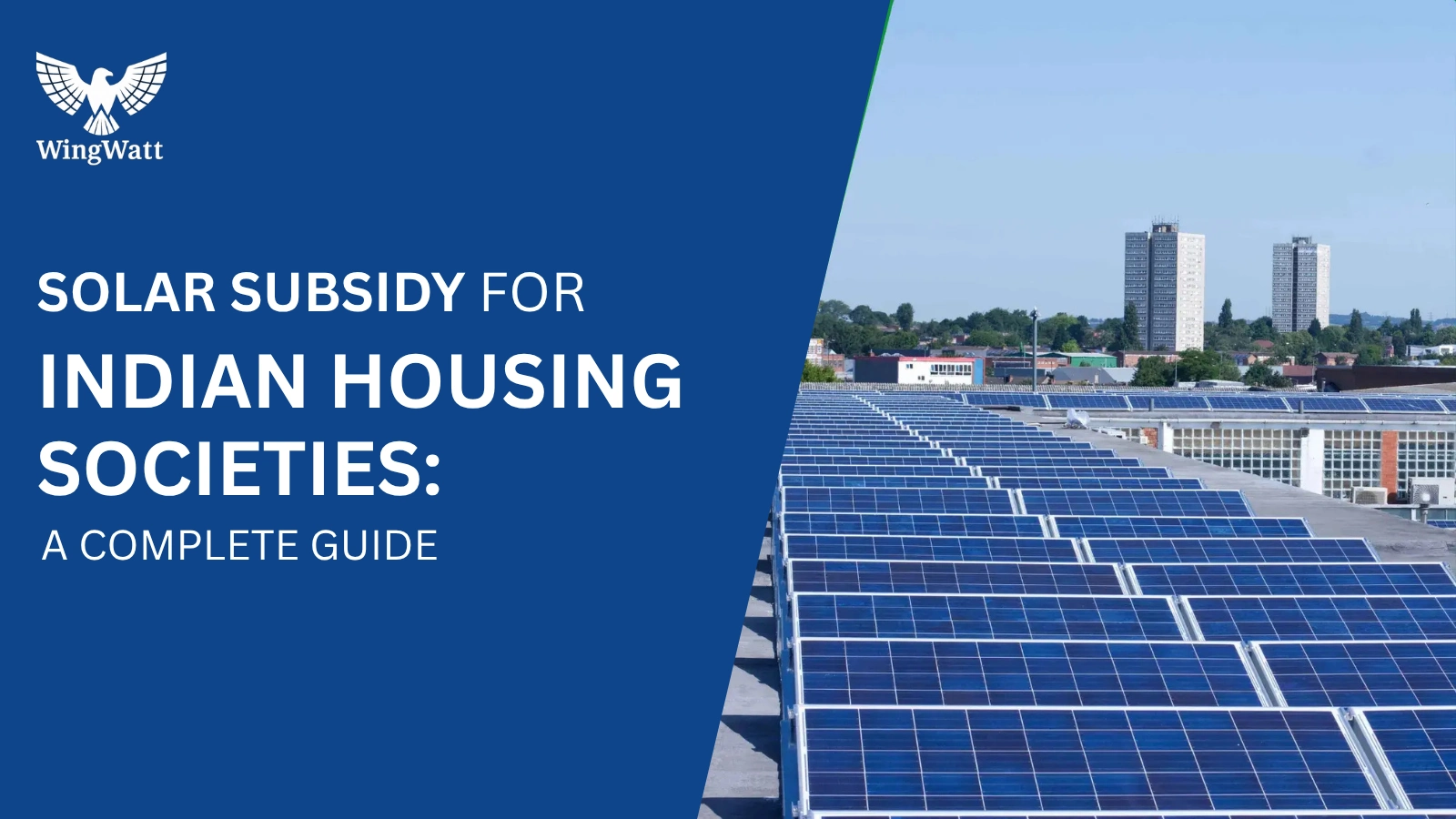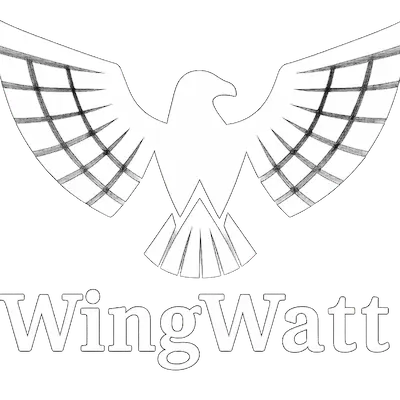Many housing societies in India are switching to solar power as a cleaner, more affordable option as a result of the annual increases in electricity costs. In addition to reducing energy costs, installing a solar system in a residential complex encourages sustainability and energy independence. What’s even better? The Government of India offers attractive subsidies and incentives to make this transition more affordable for housing societies.
If you’re part of a residential complex or a cooperative housing society and are considering switching to solar, this guide will walk you through everything you need to know about solar subsidies available in India: how they work, who is eligible, and how to apply.
Why Housing Societies Should Consider Solar Power
For housing societies, electricity is one of the biggest monthly expenses—covering common area lighting, lifts, water pumps, security systems, and more. By installing a rooftop solar system, these societies can reduce their dependency on the grid, cut monthly electricity bills by up to 60-80%, and contribute to a greener planet.
Long-term savings, a return on investment in 4–6 years, and minimal maintenance costs following installation are further benefits of solar power. It’s a wise financial decision that also respects the environment.
Government Subsidies for Solar in India
To encourage the adoption of renewable energy, the Indian government,through the Ministry of New and Renewable Energy (MNRE), offers Central Financial Assistance (CFA) or subsidies for rooftop solar systems. These subsidies are especially helpful for residential users and housing societies.
Subsidy under the PM Surya Ghar: Muft Bijli Yojana (2024 update)
Rooftop solar system installation subsidies are available to both individual homeowners and group housing societies under this central program. This is how it operates:
- Group Housing Societies (GHS) / Residential Welfare Associations (RWAs) can receive a subsidy of ₹18,000 per kW for common area solar systems, up to a maximum of ₹90,000 (for 5 kW).
- This is in addition to the benefits they may receive from state-level policies.
Who is Eligible?
Housing societies or RWAs are eligible for the solar subsidy if:
- They are a registered society under Indian law.
- The solar system is installed for common area use only (not individual flats).
- The system capacity falls within the specified range (typically up to 500 kW under the residential category).
- An MNRE-empanelled vendor carries out the installation.
How to Apply for the Subsidy
Although applying for a solar subsidy may still seem challenging, the MNRE’s National Rooftop Solar Portal has simplified the process.
This is a comprehensive summary:
- Register on the National Portal
- Visit https://solarrooftop.gov.in and register your housing society under the relevant state DISCOM.
- Choose an Empanelled Vendor
- Select a government-approved vendor to assess your rooftop and design the system. Only installations done through empanelled vendors are eligible for subsidies.
- Installation and Net Metering
- Once the system is installed, your DISCOM will approve and install a net meter that tracks the energy fed back to the grid.
- Inspection and Verification
- A DISCOM official will verify the system setup. Upon approval, the subsidy is released directly into the society’s bank account.
Additional State-Level Incentives
Some Indian states offer solar incentives in addition to the central subsidy, further reducing the cost. For example
- Delhi offers additional incentives in addition to MNRE subsidies.
- Maharashtra offers net metering benefits and faster grid approvals.
- Tamil Nadu, Karnataka, and Gujarat also promote solar adoption actively through simplified policies.
Ensure that you check your local state DISCOM website for any region-specific benefits that your housing society may be eligible for.
Benefits Beyond Savings
Installing a solar system offers more than just lower electricity bills:
- Reduced carbon footprint
- Energy security for your community
- Higher property value and resident satisfaction
- Compliance with green building norms and sustainability goals
Many societies also experience a stronger sense of community engagement when members unite behind a green initiative.
Conclusion
Although applying for a solar subsidy may seem complicated, the MNRE’s National Rooftop Solar Portal has simplified the process.
Here is a detailed summary:
If your housing society is looking to save on power bills, reduce its environmental impact, and become energy-independent, now is the perfect time to consider installing a rooftop solar system.







